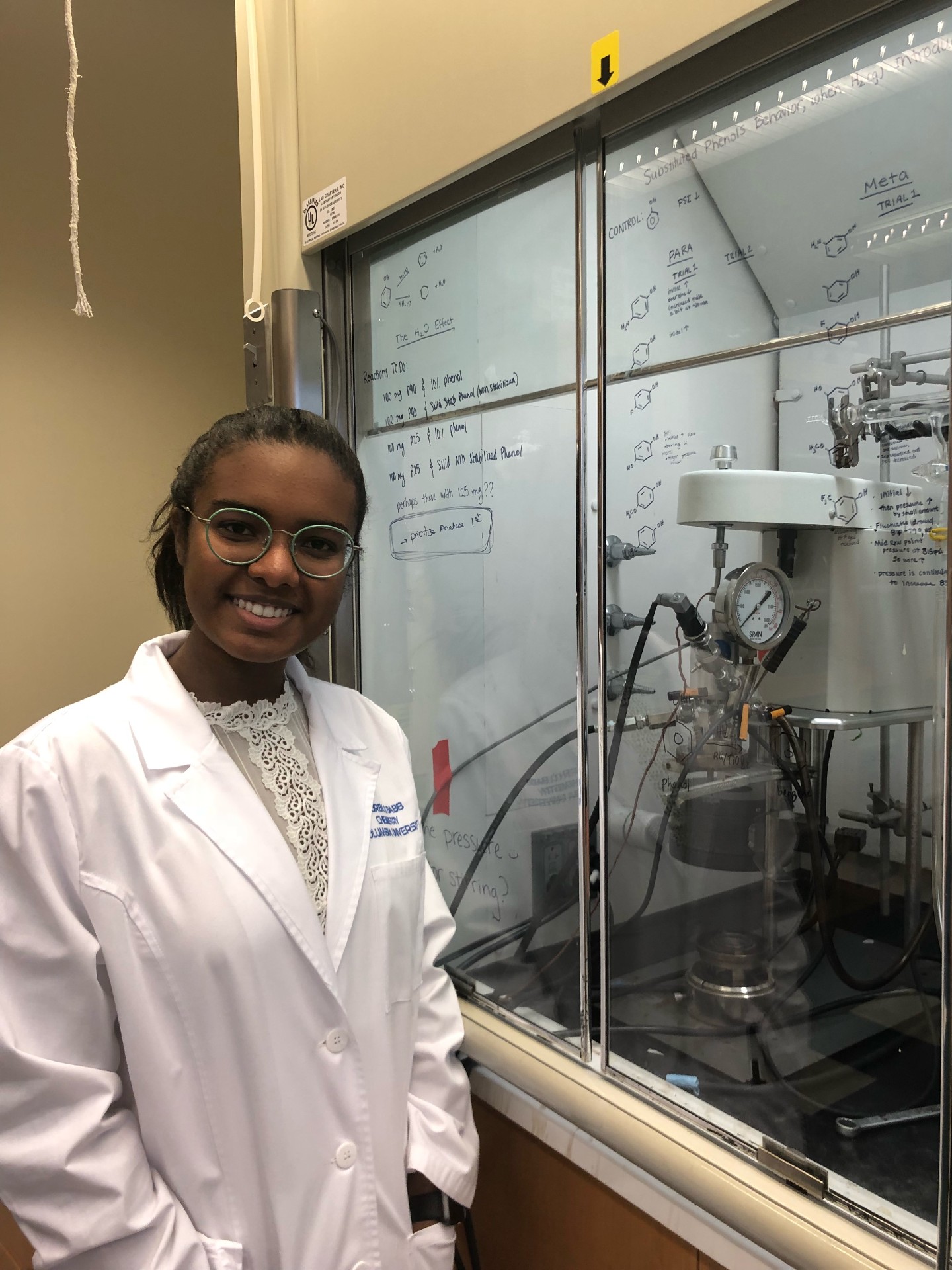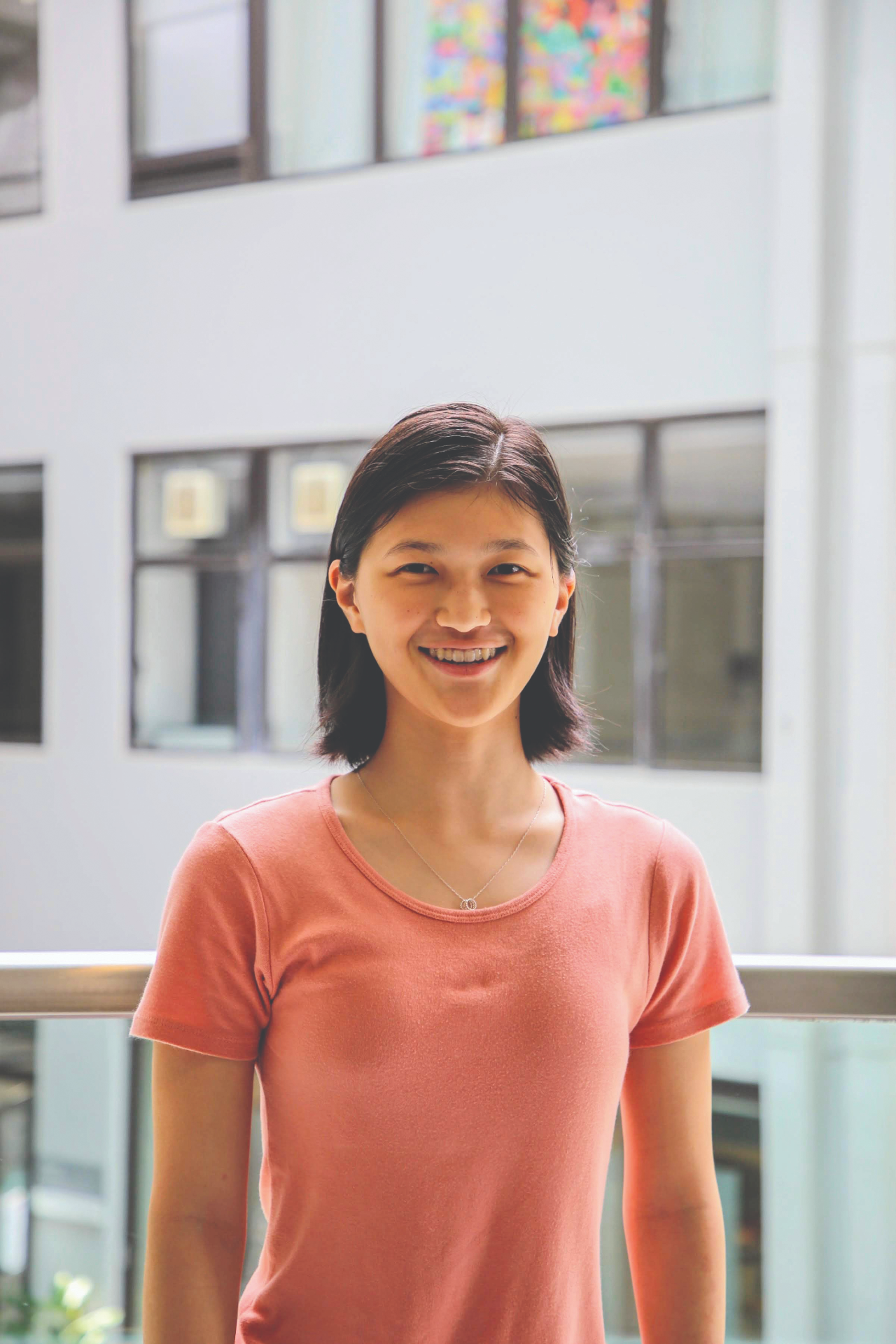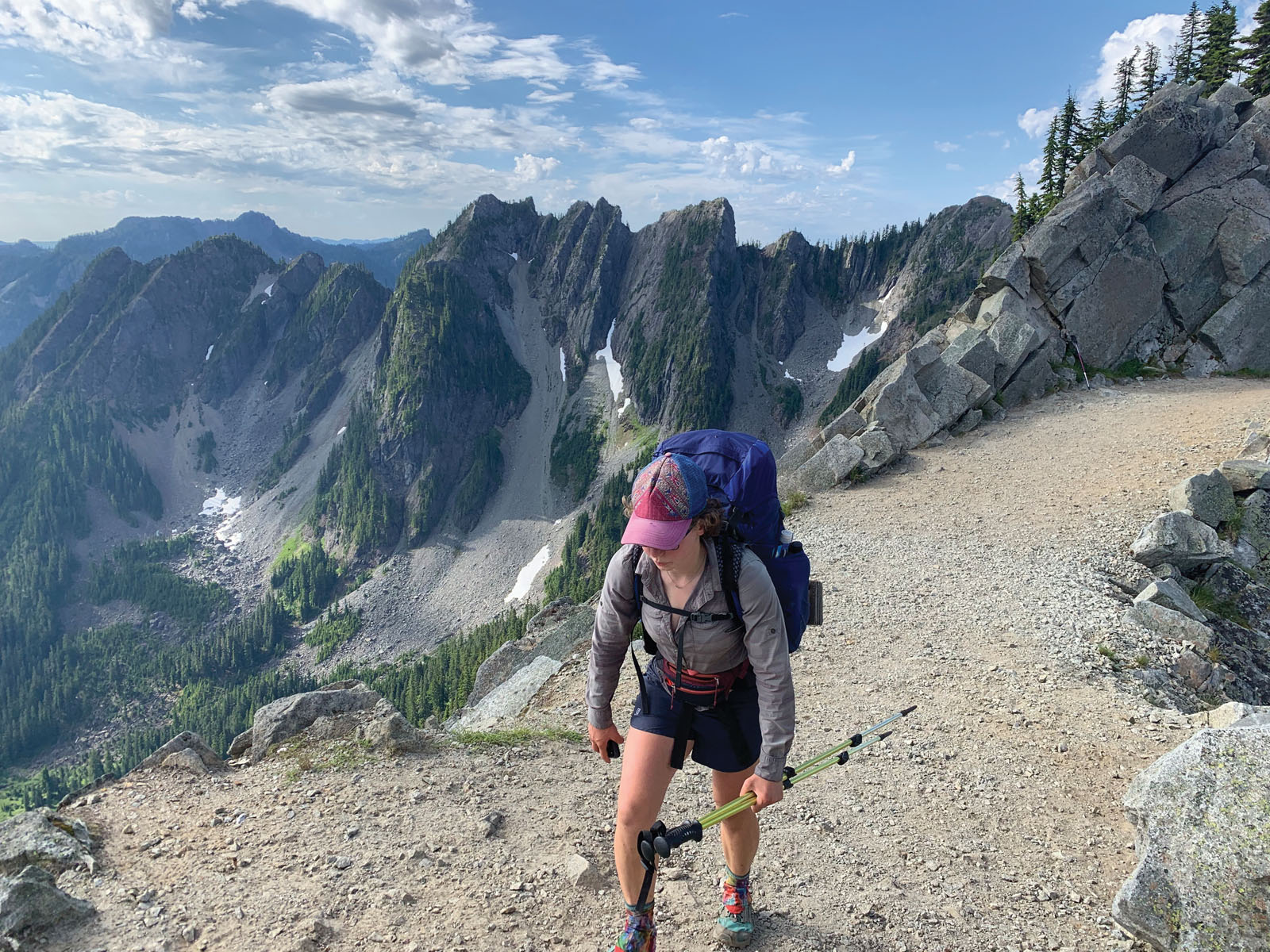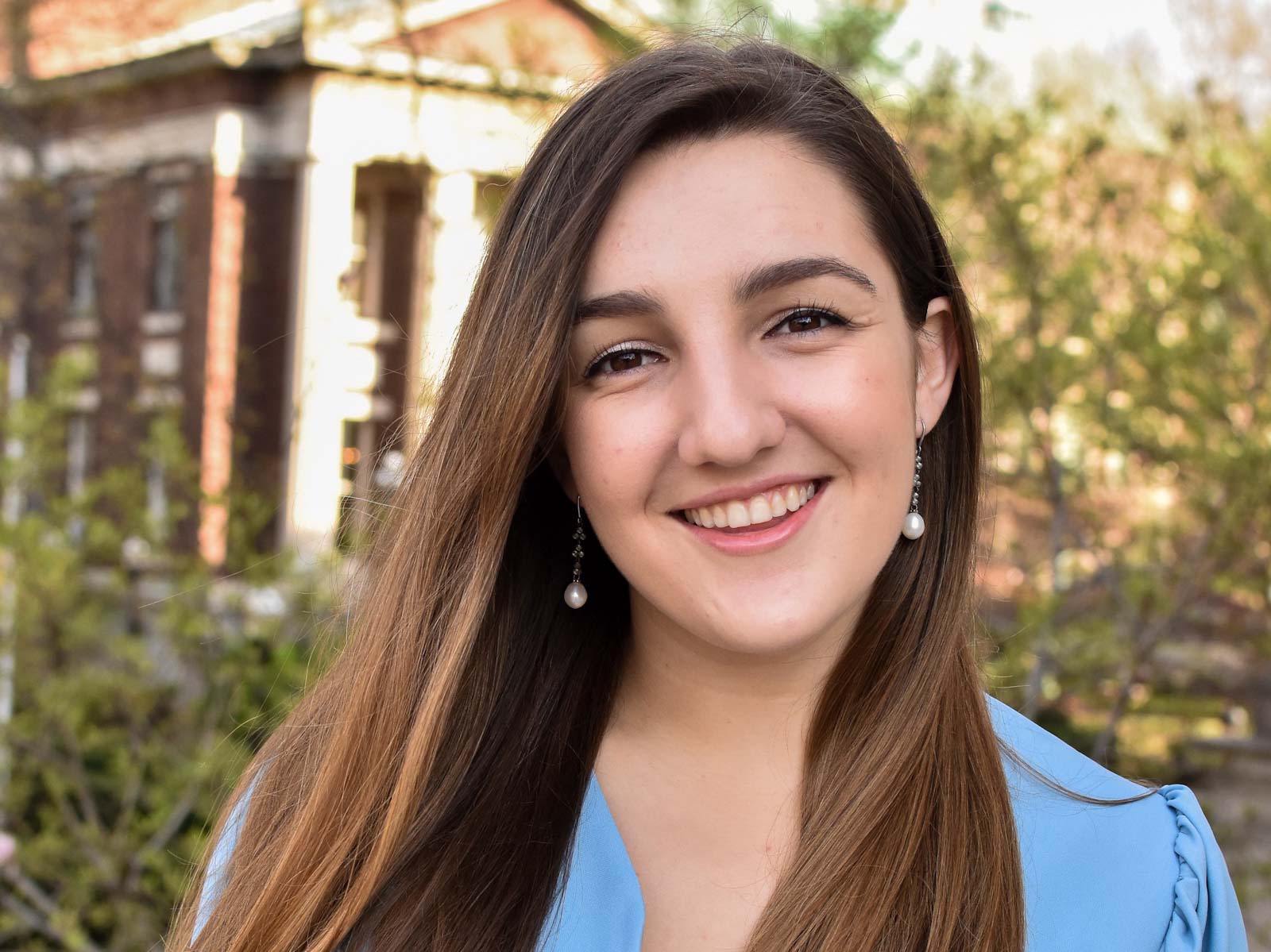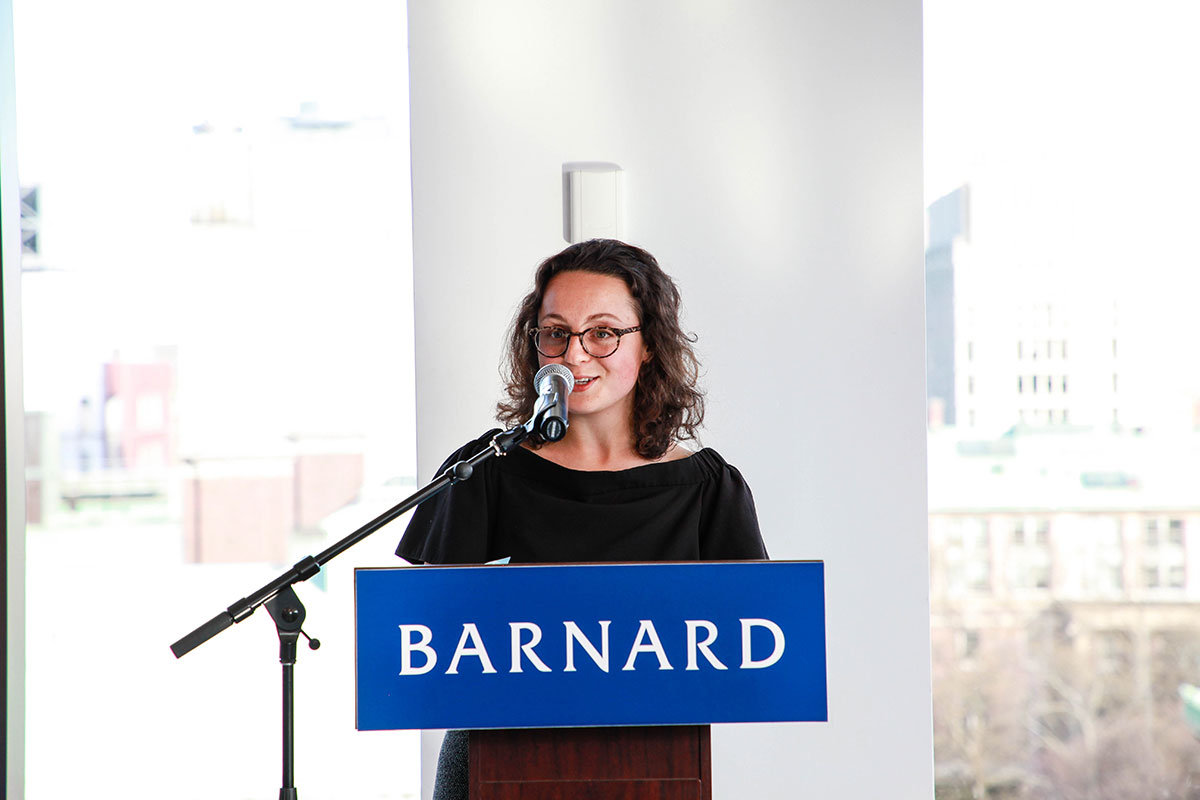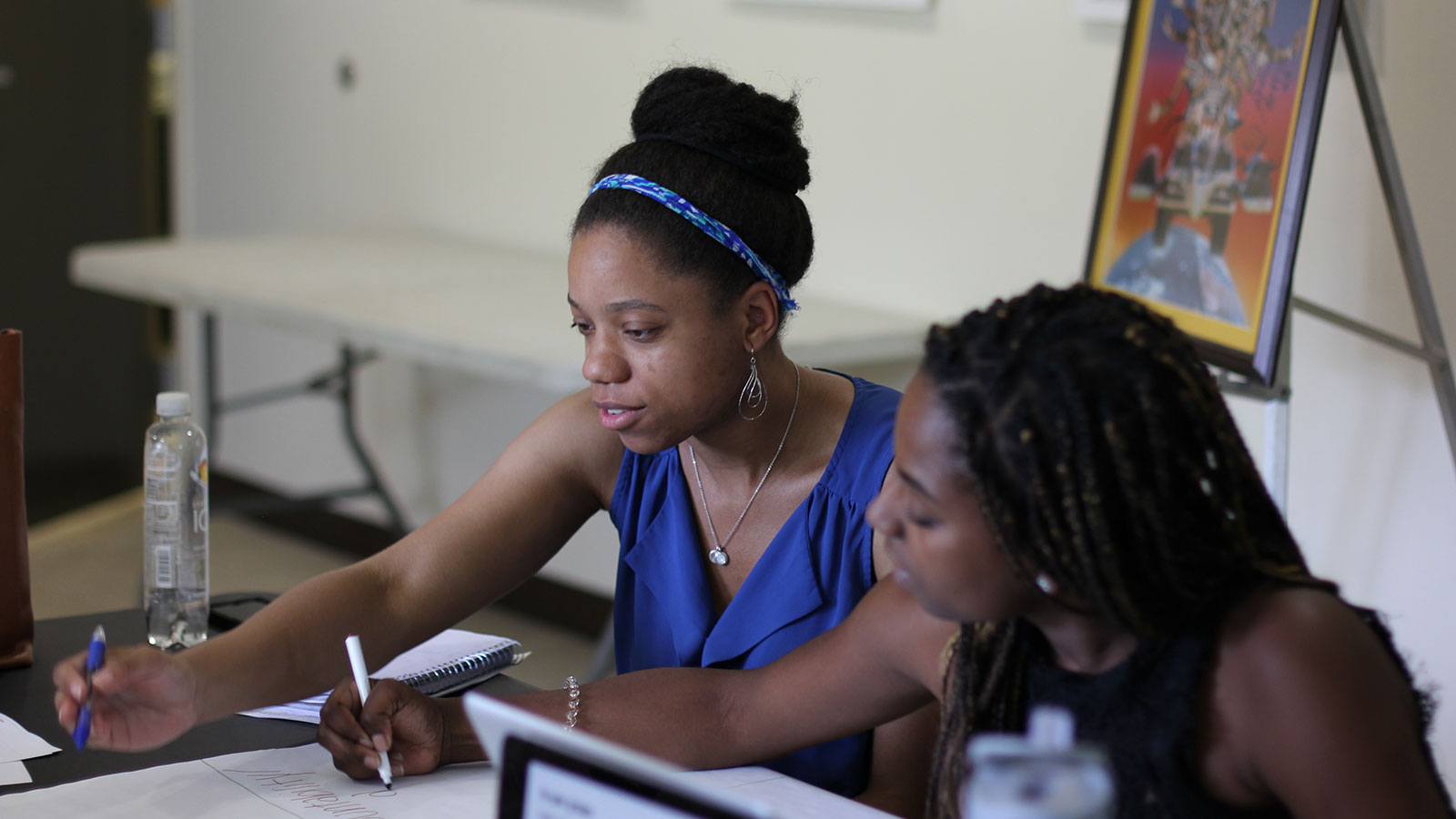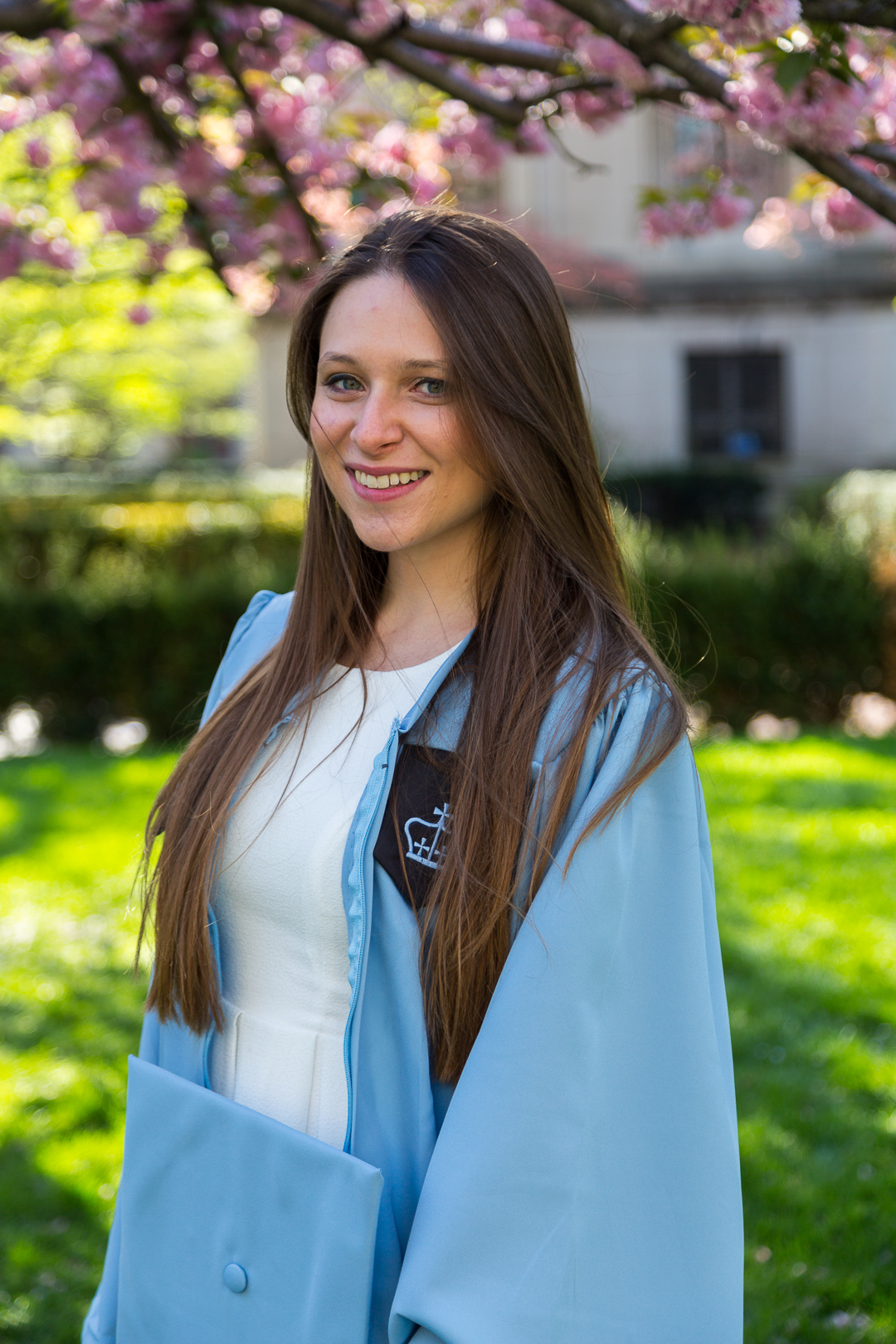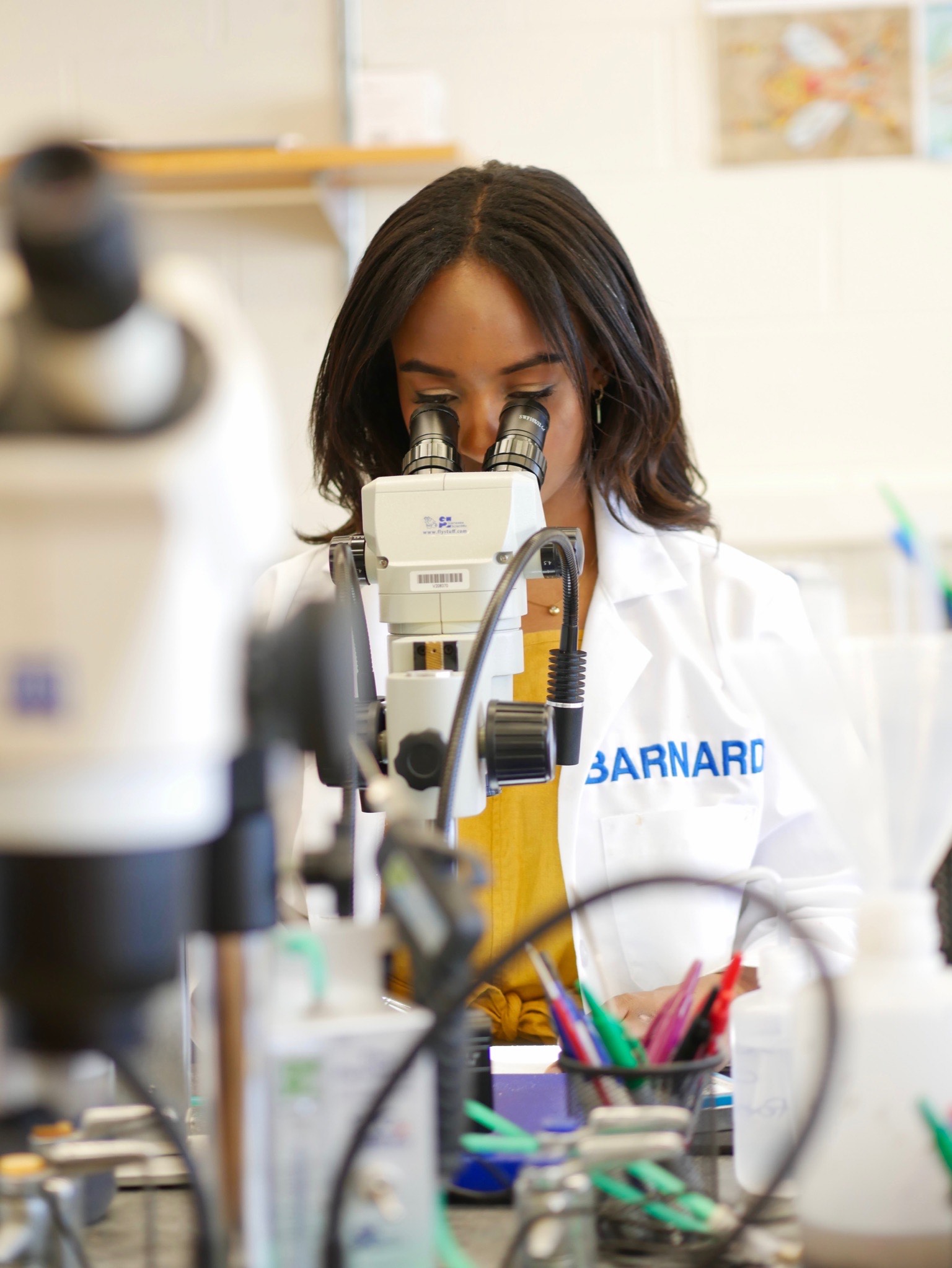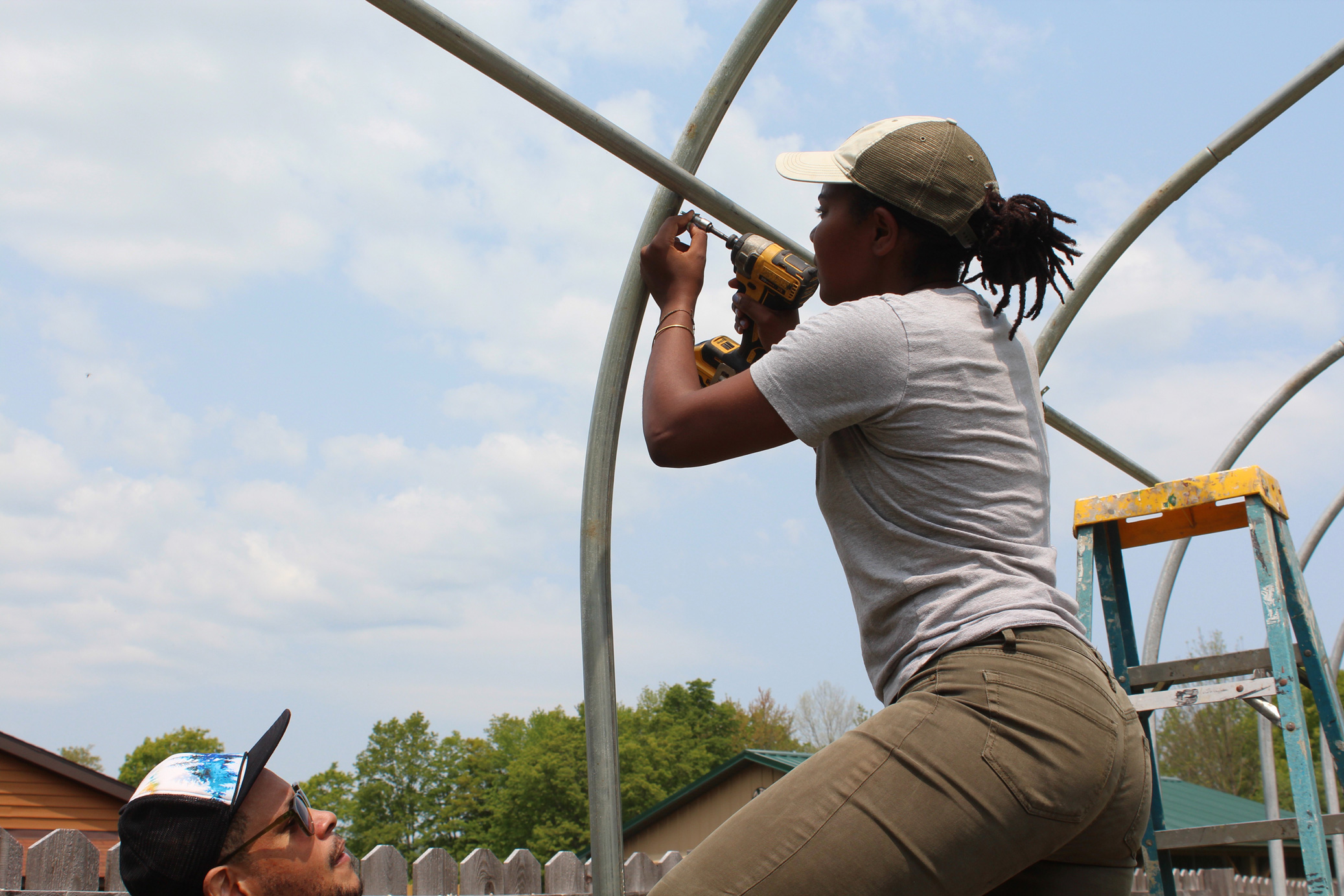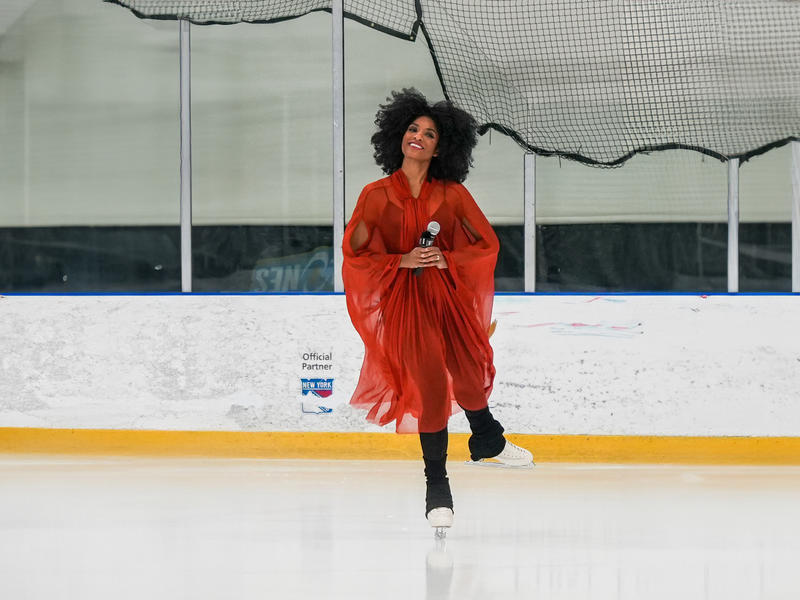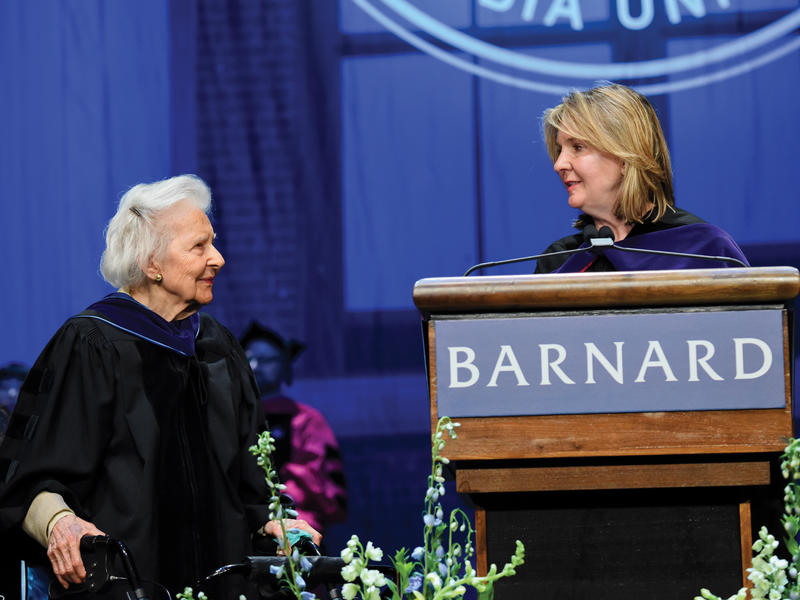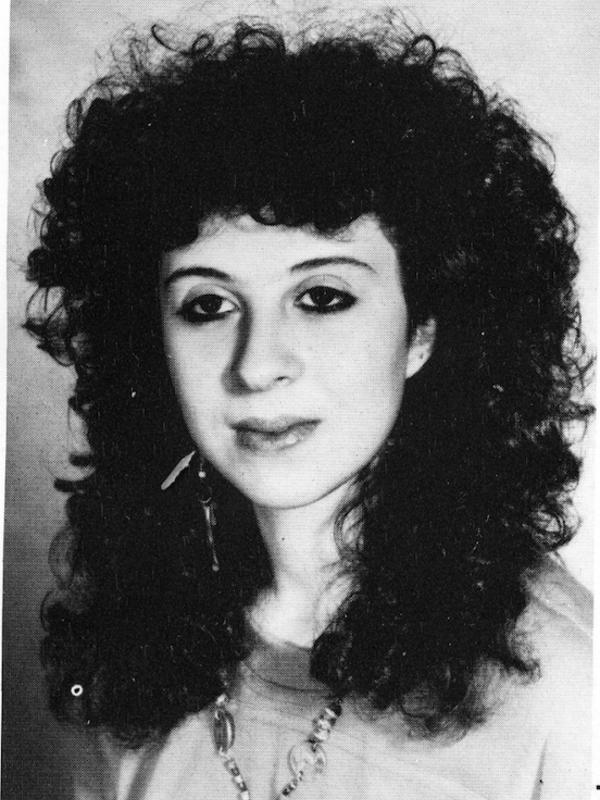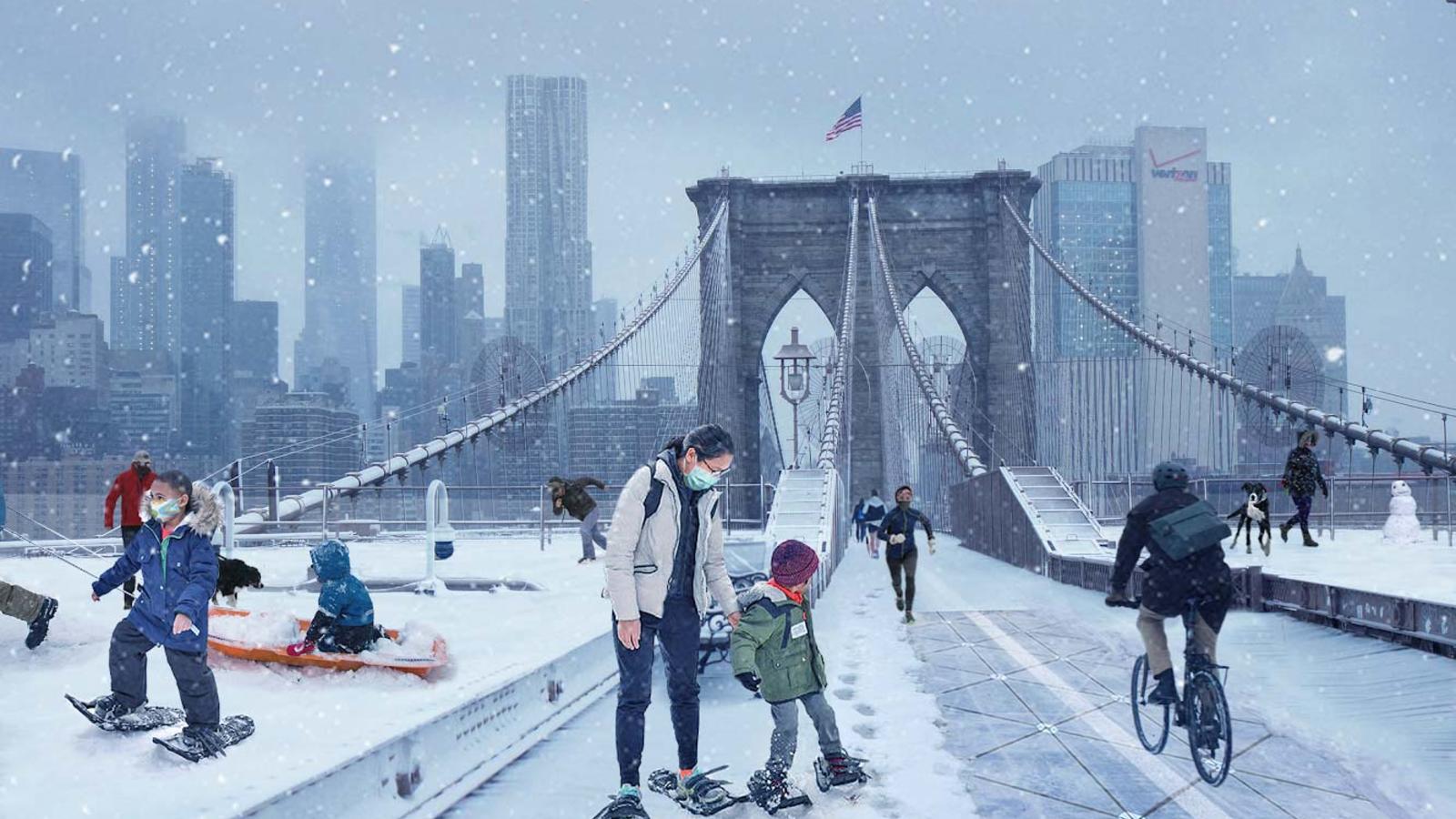
Barnard students have a reputation for not waiting to affect positive change. Some begin to contribute to new and big ideas as undergraduates (like urban planning graduate student Shannon Hui ’22) and others do within 10 years of graduation (such as social entrepreneur Olivia Watkins ’16).
For Women’s History Month (March), the College looks back over the past decade — from the Class of 2014 to the graduating Class of 2024 — to highlight 10 creative thinkers who pushed past boundaries or challenged the status quo to make room for something new.
Expanding STEM’s Borders
Two years after graduating with a chemical physics degree, Lauren Babb ’18, a graduate research assistant at the University of Maine, was invited back to campus. Rachel Narehood Austin — her Barnard mentor and Diana T. and P. Roy Vagelos Professor of Chemistry — asked her to co-facilitate a new course called Chemistry and Racism.
The course had four main segments: the landscape of racism in chemistry, representation in chemistry departments in the U.S., the voices and histories of Black American chemists, and strategies for reconstructing organizations to make change.
“Creativity is required to solve scientific problems,” said Babb, who strongly believes in “a diverse group of people — [especially Black women] — doing science.”
Creating “Space” for Women
While still a sophomore, computer science major Whitney Deng ’24 collaborated on a novel NASA project to help reduce bacterial infections in space. She was one of several students who worked with faculty advisors on the Columbia SPOCS (Student Payload Opportunity with Citizen Science) Team studying how two medically important microorganisms that naturally live in and on humans behave in space.
Columbia was one of five teams from universities across the country selected to receive funding from NASA STEM on Station to build its experiment, send up the payload, and support K-12 students and citizen science outreach. For Deng, it was essential that this outreach included women.
“It is universally acknowledged that there exists no inherent discrepancy between male and female students’ abilities to succeed in STEM,” she said. “There exists, however, a yawning confidence gap. It is imperative that academic institutions centered on women’s education champion diversity in the sciences.”
Intrepid Activism
After reading about 2018’s “refugee caravan” — the 2,500-mile journey undertaken by Central American refugees from San Pedro Sula in Honduras to Tijuana, Mexico — Aliza Goldberg ’14 turned her wanderlust into social activism. The following year, she thru-hiked 159 days across the Pacific Crest Trail’s grueling terrain, raising money for the International Rescue Committee.
“As the child of immigrants from France and Argentina, I understand how difficult it is to find and adjust to a new homeland,” Goldberg explained. “It is a privilege that I can hike the length of my country — 2,652 miles, almost the same distance as the refugee caravan — aided by the luxury of ultralight camping gear.”
Reimagining Iconic Spaces
The walkway for the City’s most iconic bridge hasn’t changed much since 1883, but Shannon Hui ’22, who majored in architecture and psychology at Barnard challenged herself to create a new design to modernize the landmark. This resulted in Hui and two of her teammates winning the 2022 young adult category of the Reimagining Brooklyn Bridge Competition.
“This competition became an opportunity for us to not necessarily provide all the answers to what a ‘better’ Brooklyn Bridge represents but start conversations about meaningful public spaces where people can feel seen and heard — not just in an idealized future but now,” said Hui, whose artistic installation tapped into three guiding principles — preservation, diversity, and future progress for change.
Economic Migraine Therapies
In 2017, before graduating with a neuroscience and behavior degree, Sarah Jinich ’19 started working on a team project to help study patients who suffer from migraines. The research resulted in the creation of 2019’s mobile app RELAXaHEAD, which offered an accessible and affordable form of treatment, in addition to standard therapies.
Making access to inexpensive migraine therapy was perfectly timed, as the American Headache Society noted in a 2018 paper that “migraine remains untreated, particularly among those of low socioeconomic status.” What’s more, three-quarters of migraine sufferers are women.
A Sociologist’s Quest
The inaugural recipient of the Ingeborg, Tamara, and Yonina Rennert Prize in Jewish Women’s Studies, Kayla Levy ’19 spent her four years at Barnard independently researching the stories of Jewish communities in both New York City and Cape Town, South Africa. She explored whiteness, Jewishness, and gentrification in Harlem for her senior thesis, which resulted in winning the $5,000 prize.
In addition to her interdisciplinary social science academic work in urban studies and sociology, Levy has produced oral histories of people affected by the criminal justice system.
Validating the Voiceless
While studying political science at Barnard, Amber Mackey ’18 worked at the nonprofit Peace by PEACE, where she structured lesson plans for grade 4 to 6 students that centered their lived experiences to empower them to successfully deal with conflict. At InterVarsity, she served meals to the housing insecure and analyzed data on mass incarceration, protests, and public opinion. She was also an Urban Leaders Fellow in New Orleans and an intern at the nonprofit EMIDA Cameroon.
“I am focusing on the resources I can leverage to care for my communities,” Mackey said in 2020, when she was a teaching assistant at the University of Pennsylvania educating her students on disenfranchisement, protesting, and mutual aid projects.
Centering Caregivers
With support from the Athena Center for Leadership and the Columbia Startup Lab, entrepreneur Claudia Polgar ’19 — who majored in medicine, literature, and society — founded CheckPoint Health, a health productivity app that helps users organize and simplify their caregiving tasks with customized checklists to streamline caregiving.
As her grandmother’s caregiver — one of 65.7 million Americans who are family caregivers — Polgar became well acquainted with the challenges one faces navigating the U.S. healthcare system. Said Polgar, “I believe that family caregivers hold the key to alleviate pressure on an overburdened healthcare system, to improve their effectiveness in managing care tasks, and to promote safe independence of the patient.”
Marrying Social Justice and Healthcare
At the start of her senior year at Barnard, Chelsea Sinclair ’21 had already won the Charles H. Turner Award from the Animal Behavior Society (ABS). The honor recognized the work she conducted with fruit flies in a lab run by assistant professor of biological sciences Alison Pischedda.
Speaking at the ABS meeting in 2020, Sinclair advocated for underrepresented STEM voices to be heard. “It is important for an array of perspectives to be included and voiced in research, and when we incorporate our experiences into our research, novel concepts and considerations surface,” she said.
An Agricultural Advocate
For her work at the intersection of agricultural justice and business, Olivia Watkins ’16 received the 2023 Humanitarian of the Year award from the James Beard Foundation. She’s the co-founder and co-executive director of the Black Farmer Fund (BFF), a nonprofit that invests in Black farmers and food businesses in New York to create sustainable and equitable food systems.
“Listening to the community and actually responding to [their needs] is ingrained in how we operate,” said Watkins in 2023. As of last August, BFF was on track to raise $20 million — which Watkins hopes will support 30 new businesses and farms.
